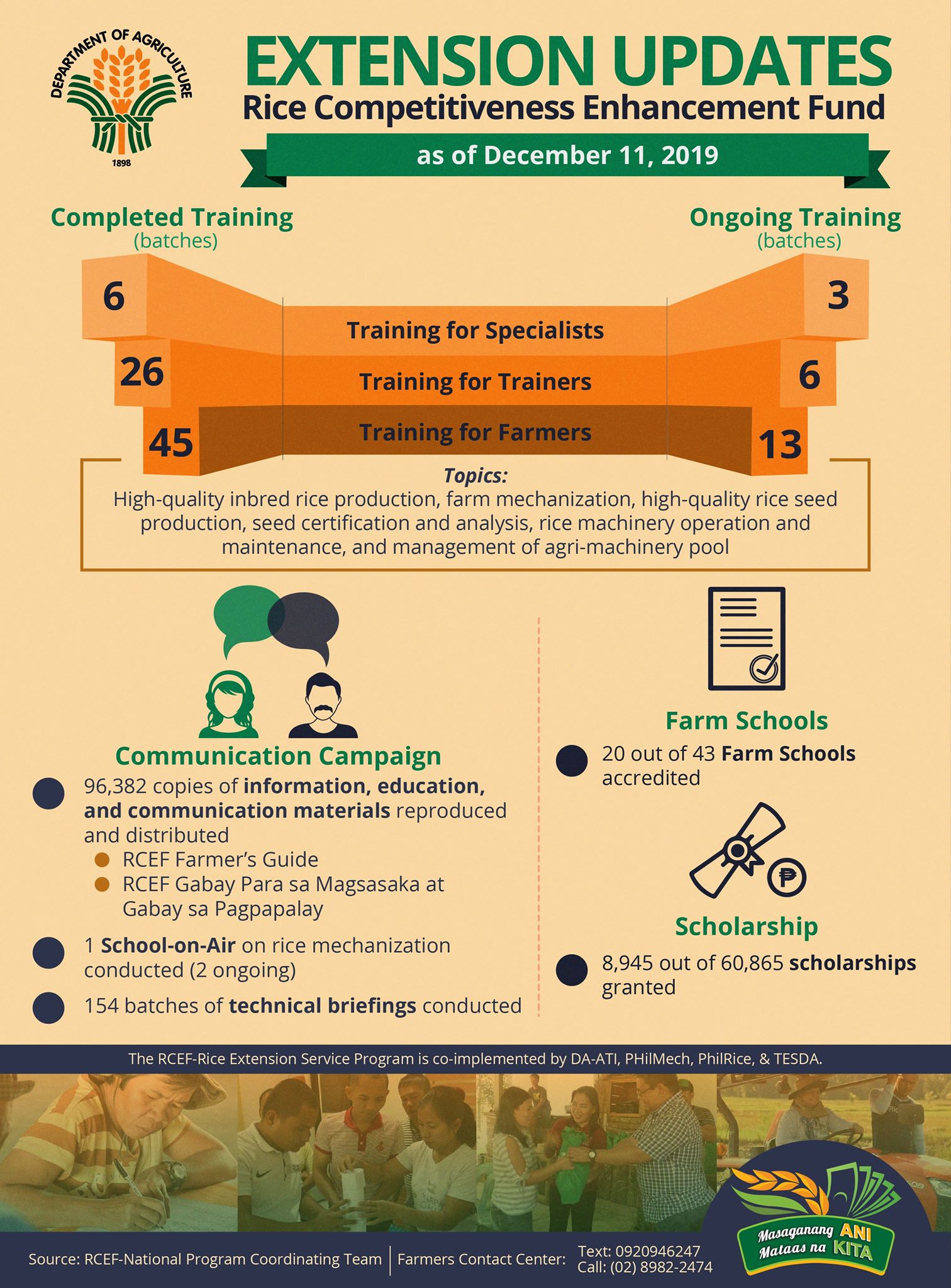
Training efforts are continuously being rolled out for farmers through the Rice Extension Services Program (RESP), a key component of the Rice Competitiveness Enhancement Fund (RCEF).
Since the implementation of the RESP, 99 training (77 completed, 22 ongoing) have been extended to regional focals, agricultural extension workers, farmers and farm workers including members of cooperatives and associations.
From the P10 B total fund of RCEF, 10 percent or P1B is allotted to skills training in developing new education modules, and other related extension efforts. The funds are being utilized by implementing agencies that include the Agricultural Training Institute (ATI), Philippine Center for Postharvest Development and Mechanization (PHilMech), Philippine Rice Research Institute (PhilRice), and Technical Education and Skills Development Authority (TESDA).
Seventy percent of the extension funds go to TESDA, while PhilMech, PhilRice, and ATI get 10 percent each to carry out their tasks related to the rice fund program.
Among the topics covered for the training include high-quality inbred rice production, farm mechanization, high-quality rice seed production, seed certification and analysis, rice machinery operation and maintenance, and management of agri-machinery pool.
“We are conducting the training using a top-down approach, meaning we train the specialists first, these are experts who will then train the agricultural extension workers who will later become the ‘trainers’ who will teach the farmers and farm workers on the ground,” explained Agriculture Secretary Dar.
Also under RESP, communication campaigns, accreditation of farm schools, and granting of scholarships are being undertaken.
To date, 96,382 copies of Information, Education and Communication (IEC) materials have been reproduced and distributed including farmer’s guides and references.
Meanwhile, three School-on-Air (SoA) on rice mechanization have been facilitated, 1 completed and 2 ongoing. Technical briefings were also conducted for 154 batches of participant-beneficiaries.
Out of the 43 farm schools targeted for this year, 20 have already been accredited. TESDA is implementing the scholarship program for farmers and farm workers listed in the Registry System for basic Sectors in Agriculture (RSBA) to enroll in farmers field school (3-11 days) which is being conducted by the accredited farm schools. To date, 8,945 scholarships have been granted.
“We see to it that training modules are harmonized to ensure the timely delivery of services intended for the rice farmers under RCEF,” Dar said.
Aside from rice extension service, the other three components of RCEF are rice seed development, propagation and promotion; rice farm machinery equipment; and expanded rice credit assistance.
The RCEF components are being implemented in a cohesive manner to ensure that rice farmers are given enough support and assistance given the challenge of free trade that has removed quantitative restrictions on rice imports replaced by tariff system. ### (Rita dela Cruz, DA Communications Group)













